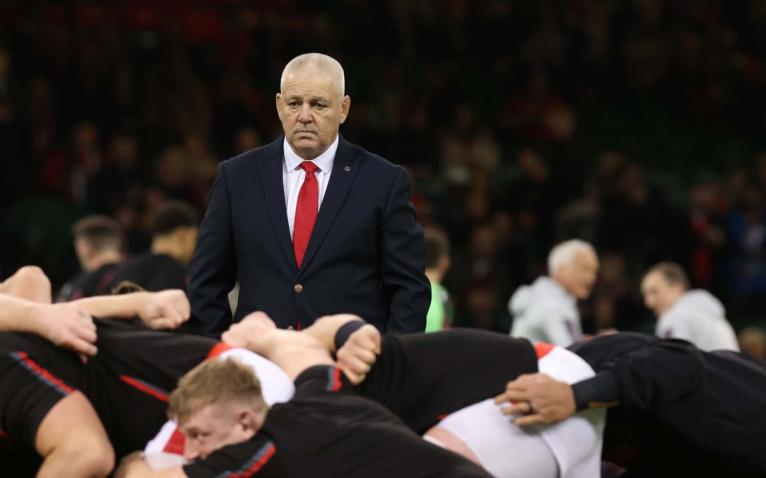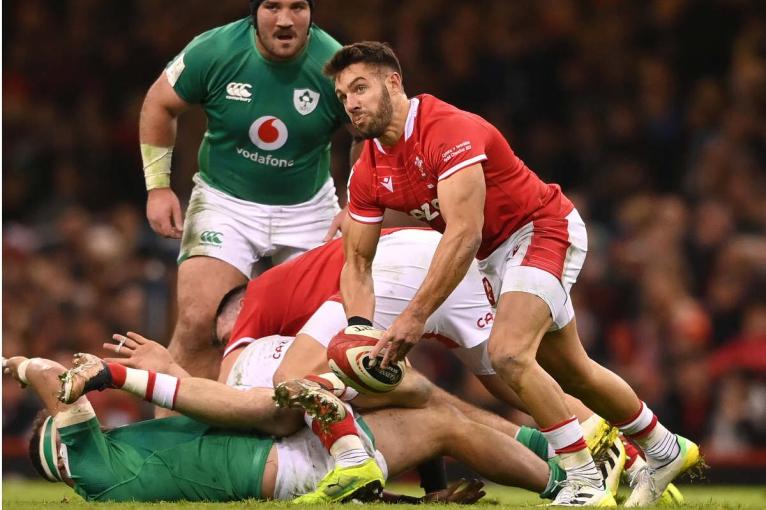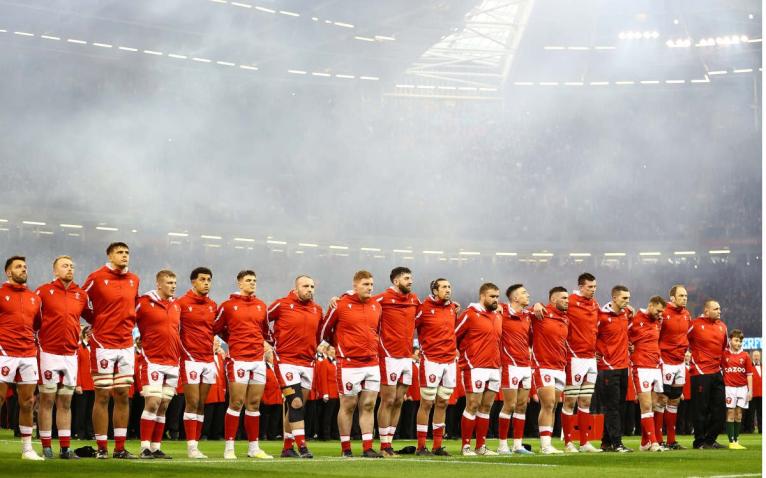Any notions of returning glory dreamt up by Warren Gatland on his long flight from Hamilton to Cardiff have long since been disbanded. As a cold chill sweeps the country, Wales’ most decorated coach – in role for only 95 days – has ventured to Rome, where, dependent on the result, the Welsh public will raise or lower their thumbs, to pass judgement on his chosen gladiators.
The portents are not encouraging. Italy have their tails up, after tangible signs of progress against France and Ireland. They are hellbent on registering a first Six Nations victory in their capital since 2013. Wales, for their part, have lost three games on the bounce since Gatland’s return, and have a chastening points difference of -62. This is not a sudden downturn, however. They have lost 12 of their last 15 Tests, and are in a rut, seemingly without a ladder. Lose to the Azzurri this weekend and they could end up in 13th place in the World rankings, less than four years after occupying first place. That is a precipitous drop.
Gatland, who remember, has three Grand Slams to his name, looks lost, almost bewildered at the recent turn of events. The air of invincibility and braggadocio he once wore at press conferences, has been replaced by frowns and the unenviable task of walking the tightrope between backing his players in the agonising contractual dispute that threatens their livelihoods, and not seeming to undermine his employers’ hardline stance. More than once, he has lost his balance with a misstep, or misspoken word, leaving him vulnerable to attack from all angles.
Without the snarl of Shaun Edwards by his side, the coaching intellect of Rob Howley, who was inexplicably vetoed from returning as his right-hand man due to ‘spent’ discrepancies, and the quiet, methodical set-piece graft of Robin McBryde, Gatland has had several layers of protection stripped away from him. Alex King, Mike Forshaw and Jonathan Humphries – a remnant of the inconsistent Wayne Pivac era – all have their strengths but to expect this disparate group of coaches to hit the ground running from such a low bar was always going to be a tall order. Compare this recruitment with Steve Borthwick, who has been allowed to bring Kevin Sinfield, and latterly Richard Wigglesworth and Aled Walters with him to navigate a path to World Cup glory, and you can understand internal frustrations.
Indeed, the job sold to him by former CEO Steve Phillips only 11 weeks ago, now seems like false advertising. Gatland is currently putting out more fires than Red Adair.

In recent weeks, the internecine, ruinous strife he claimed not to be aware of has detonated beneath him, leaving him rocking, and on the back foot. The Kiwi could, quite rightly, claim myriad excuses for Wales’ poor performances but that wouldn’t wash with a Welsh public tired of a never-ending blame game.
Gatland is trying to put a brave face on a tournament in which Wales have scored only three tries and shipped 15. After heavy losses to Ireland and Scotland, the requirement to try out new combinations and new faces has become all Wales have to play for. With the tournament already filed under ‘video nasty’ and soon to be buried away in the WRU vaults, the only maxim left is building for the World Cup, with some wags pointing out that the 2027 iteration is more realistic target. With 21 changes to date, there is little in the way of selection consistency and burgeoning, tantalising combinations.
Few would have thought Dafydd Jenkins (20), Christ Tshiunza (21), Joe Hawkins (20) and Mason Grady (20), would be kicking off their fledgeling Test careers, eight months on from representing the Wales U20 team, with their L-Plates still attached. The disparity between these fresh-faced bucks and the grizzled Test warriors Alun Wyn Jones, 37, Ken Owens, 36 and the raft of players in their mid-thirties (Scott Baldwin, Leigh Halfpenny, Rhys Webb, Dan Biggar and Justin Tipuric) is stark.
The perceived optimum age-range of 25-29 is poorly represented with only Josh Adams and Adam Beard fitting that criteria for the Italian job.
At 34, 38-caps is borderline criminal for a player of Webb’s talent, but he deserves his chance to exert control over the game
From the outside, the selection for the Italy game screams, ‘the Six Nations is gone, it’s all about World Cup experimentation’. Pore over with a scalpel and it’s difficult to pick areas where Gatland knows his best side. The front-row is a revolving door with Wyn Jones, Rhys Carre and Gareth Thomas on a merry-go-round, while at tight-head, Tomas Francis, Dillon Lewis and Leon Brown have all been used during the tournament. The second-row is not much better and has seen Alun Wyn-Jones and Dafydd Jenkins switching to pack down with Adam Beard – a rare constant – while in the backrow, Christ Tshiunza has been left out of the 23 entirely for Rome, with Jac Morgan and Justin Tipuric packing down either side of Taulupe Faletau, who was dropped to the bench for the Scotland game. Tommy Reffell has been used sparingly and must also be wondering where he stands. Compare this to Ireland, Scotland and even England’s consistency in selection and you realise Wales are running out of time with France looming.
In the backline, the changes keep racking up as they search for a cutting-edge. At half-back, Rhys Webb will make his first start since 2017. This after Gatland’s 60-cap law was implemented and the players’s cold war with Wayne Pivac saw his Test involvement wane. At 34, 38-caps is borderline criminal for a player of Webb’s talent, but he deserves his chance to exert control over the game with Tomos Williams often failing to convince after 42 caps.

One intriguing longer-term development could come at fly-half. If Owen Williams, flowering as a Test 10, in his 32nd year, is injured, or having an incubo, then the back-up is to move Joe Hawkins inside. Those who know the young Osprey well, say he has the skillset to play at 10, and has played there for the Ospreys. With Biggar, Gareth Anscombe and Williams into their thirties and Rhys Patchell set to join them in a matter of months, there is a void in a pivotal position, especially with Jarrod Evans, seemingly unfancied, off to Harlequins to play a role as understudy to Marcus Smith and Callum Sheedy seemingly out of the picture. The next option is 22-year-old Sam Costelow, who maybe deemed not robust enough for the step up to Test level.
A tempting option then,that could appeal to Gatland as the World Cup approaches is to place Johnny Williams at 12. The 26-year-old has been beset by injury but is one of the regional game’s most potent midfielders this season, when fit, as he showed against Munster last week. At 6ft 3in, and 16st, he is built more like a Gatland-type 12, and paired with Mason Grady, or the veteran George North, should at least give Wales some more gainline success, and deft offloading ability.
It has to be noted that the Welsh players have not become a poor team overnight. There is not the chasm in class between them and the rest of the sides in the tournament.
The back-three is another unsettled area. Gatland has picked Leigh Halfpenny twice, ahead of Liam Williams but the unsettled Cardiff full-back has picked up two yellow cards and earnt a public rebuke from Gatland for his indiscipline. He said he toyed with starting Louis Rees-Zammit at 15, but a lack of game-time has counted against the Gloucester-flyer. Either way, those pointed comments will have been duly noted by Williams. There is also a suggestion that more is expected from Josh Adams on the right wing, after a quiet outing against England. That will have hit home, too. Gatland is subtly chiding his senior players to offer more, while rewarding the fledgeling Rio Dyer for his workrate.
For all the wailing and navel-gazing, it has to be noted that the Welsh players have not become a poor team overnight. There is not the chasm in class between them and the rest of the sides in the tournament. They have, in truth, been hampered by a ruinous, ill-judged strategy from the Welsh Rugby Union and a complete breakdown in trust with the beleaguered regions that is yet to resolve itself. However, they must look to improve in spite of the off-field ructions, and take responsibility for their torpor. The blame for their inconsistent set-piece, lacklustre defence, indifferent decision-making and especially lack of innovation behind the scrum must, at some point, fall on the coaches and players, and external problems not used as an excuse for all ills.

Welsh fans are clinging to the hope that like Steve Hansen in 2003, a sorry whitewash is a reflection of short-term pain for long-term gain, as Wales were competitive at the World Cup later that year, and this influx of fresh-faced, hungry talent can prove fearless if promoted into the front-line for Wales’ World Cup assault in September, in a similar vein to 2011, when Wales were a Leigh Halfpenny penalty kick away from a World Cup final.
While Gatland’s legacy is secure, he is fighting for his coaching reputation. Fighting to prove he is not yesterday’s man. Fighting to prove he can still inspire a nation.
Gatland has stressed that you cannot coach experience and so he is furiously trying to get minutes under the belt for these young colts to the detriment of results, while critics are openly questioning whether he still boasts the Midas touch or whether he is past his best.
That cossetted dream of a soft Welsh landing, bathed in smiles and warm hospitality has proved nothing of the sort. While Gatland’s legacy is secure, he is fighting for his coaching reputation. Fighting to prove he is not yesterday’s man. Fighting to prove he can still inspire a nation. The stakes could not be higher.


Comments
Join free and tell us what you really think!
Sign up for free